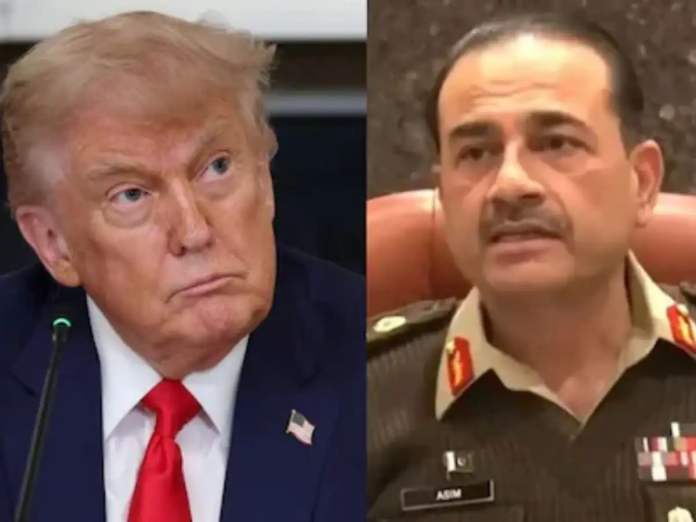The recent meeting between Pakistan’s Field Marshal Asim Munir and U.S. President Donald Trump has sparked significant debate across political, diplomatic, and media circles. On one hand, it represents an opportunity for Pakistan to strengthen ties with an influential U.S. figure known for his unpredictable but consequential foreign policy moves. On the other, it has reignited concerns over the role of Pakistan’s military establishment in foreign policy and governance — a space traditionally reserved for elected civilian leadership.
To begin with, the symbolism of a high-profile meeting between Pakistan’s military chief and a U.S. president is unmistakable. In a normal democratic setup, such meetings — especially ones involving foreign leaders — would be spearheaded by the Prime Minister, Foreign Minister, or at least someone from the civilian administration. However, in Pakistan’s unique political landscape, where the military has historically played a central role in shaping domestic and foreign policy, this development is not entirely surprising.
Still, the optics are hard to ignore. The absence of political leadership from such a crucial engagement sends a clear signal: it is the military establishment that continues to call the shots in Pakistan’s foreign policy corridors. Critics argue this undermines the credibility of democratic institutions, especially at a time when Pakistan’s political stability is already under strain.
Yet, pragmatism demands we look beyond symbolism. If this meeting can unlock U.S. investments or initiate high-level diplomatic backchannels to help stabilize Pakistan’s fragile economy or improve its international image, then the engagement is worth the effort. In this light, any productive outcome — particularly in the realms of trade, investment, or defense cooperation — should be welcomed by all stakeholders.
There are, however, questions surrounding the timing of the meeting. It comes amid a volatile regional situation, with Israel intensifying attacks on Iran, raising fears of a wider Middle East conflict. In such a climate, the optics of Pakistan’s top military commander meeting a major U.S. political figure could be misinterpreted, especially by countries like Iran, who may see this as a tilt towards Western bloc interests.
Nonetheless, it must be clarified that this meeting had reportedly been planned well before the recent flare-up in the Middle East. Drawing a direct connection between the two events would therefore be misleading and speculative. The field marshal’s visit, while sensitive in timing, should be seen within the broader context of Pakistan’s ongoing attempts to re-engage diplomatically with global powers.
Ultimately, what matters most is the substance of the meeting. If it lays the groundwork for economic cooperation, helps Pakistan navigate the complex geopolitical chessboard, or improves national security coordination, then the old adage applies: all is well that ends well.
Pakistan must now ensure that such diplomatic overtures translate into tangible benefits for its people — and that the civilian leadership plays its rightful role in steering these engagements forward.

















